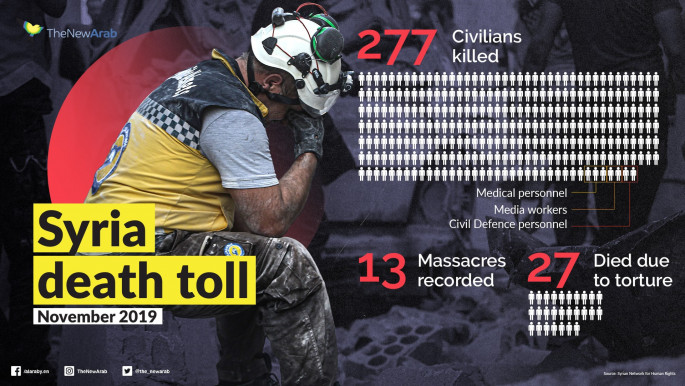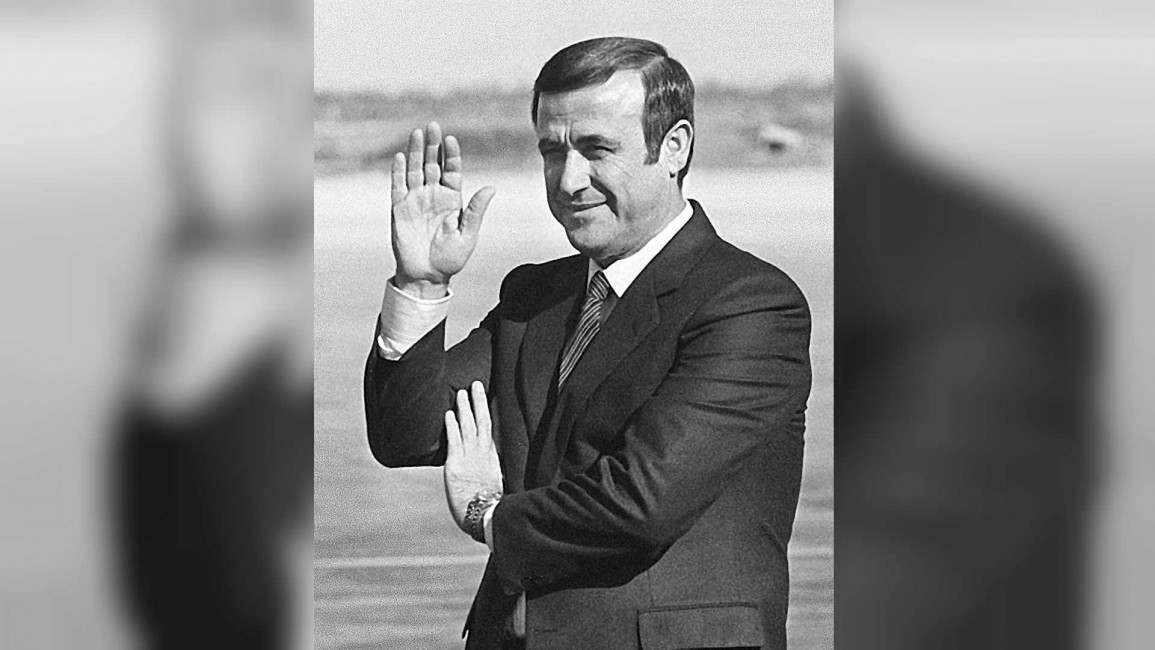Syrian President Assad's 'Butcher of Hama' uncle faces Paris money laundering trial
The trial of Syrian President Bashar al-Assad’s uncle, who is accused of illegally using Syrian state funds to build a French real estate empire, opened on Monday in Paris.
The trial opened five years after Transparency International and French anti-corruption group Sherpa filed a complaint charging Rifaat al-Assad with using shell companies in tax havens to launder public funds from Syria into France.
The 82-year-old was excused from the proceedings for medical reasons.
The former Syrian vice president and brother to ex-President Hafez al-Assad fled Syria after a falling out with the former ruler and a failed coup attempt in 1984. Since then, he and his large family have amassed a real estate empire across several European countries, while continuing to organise opposition to Bashar al-Assad’s regime from abroad.
Rifaat al-Assad's French holdings, which include several dozen apartments and two luxury townhouses in Paris, have been valued at 90 million euros ($99.5 million) — a sum the watchdog groups say is well beyond what he could have earned as a Syrian vice president and military commander.
“It is important, given the current context, to reveal where the fortune ... comes from because we think it was at the expense of the civilian population in Syria,” Sherpa President Franceline Lepany said in an interview.
French authorities have been probing Rifaat al-Assad’s finances since 2014. They filed preliminary charges against the Syrian exile in 2016, and an investigating judge charged him with money laundering and diversion of public funds.
Read also: Spanish court seeks to try Assad's uncle, the 'Butcher of Hama', for money laundering
The presiding judge on Monday read out a list of companies linked to Rifaat in Gibraltar, Lichtenstein, and Luxembourg. She indicated that much of the case will center on the circumstances of his exile from Syria and his friendship with King Abdullah of Saudi Arabia, who died in 2015.
Rifaat al-Asad has said the funds that allowed him to buy his French real estate came from generous gifts from his 16 children and the late Saudi king. He denies all charges against him “completely,” according to Cedric Anthony-Btesh, a representative of the family.
But Vincent Brengrath, the lawyer representing Sherpa in court, said the defendant has never been able to provide a satisfactory account of how he bankrolled his lavish lifestyle in Europe.
“We don’t know the source of funding and that’s the reason why, today, he is charged with money laundering,” said Brengarth. The explanations, he said, "have never been convincing.”
Lepany, the Sherpa president, said she hopes Rifaat’s money will one day find its way back to the Syrian people. Her organisation is working to develop a transparent legal mechanism for restitution that would ensure the money does not end up in the hands of repressive rulers.
France is not the only country taking Rifaat al-Assad to court. He faces an impending trial in Spain, where he and 13 members of his entourage have been charged with laundering around 660 million euros ($730 million) through real estate purchases. In 2017, a Spanish judge ordered the seizure of more than 500 properties belonging to Assad and his relatives.
The French trial is expected to conclude December 18, though a decision is not expected for several months.
The trail will not address alleged “blood crimes,” but Brengarth said the trial marks a step toward holding the former Syrian official accountable.
Rifaat al-Assad, who commanded a military brigade in Syria in the early 1980s, acquired the nickname “the Butcher of Hama” after human rights groups alleged he supervised an assault that crushed a 1982 uprising in Hama, Syria. The death toll reportedly topped 20,000, a figure never officially confirmed.
Rifaat has denied any role in the Hama massacre, which he said was ordered by his late brother, Hafez. He has also been linked to the 1980 killings of hundreds of prisoners as well as Syrian army abuses in Lebanon in the 1970s and early 1980s.
Follow us on Twitter and Instagram to stay connected



